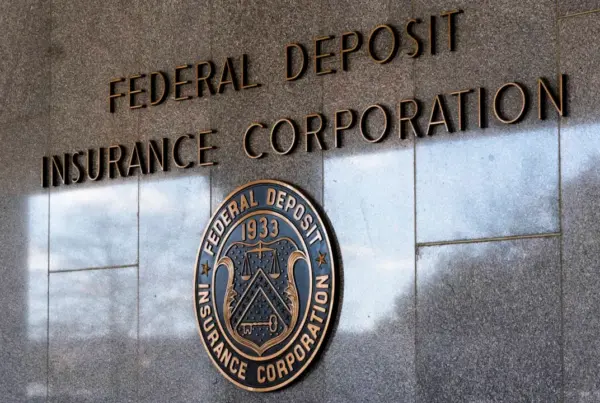FDIC’s Proposed Rules on Brokered Deposits: Key Insights for Financial Institutions
Introduction
On August 23, 2024, the Federal Deposit Insurance Corporation (FDIC) proposed significant amendments to its regulations concerning brokered deposits, aimed at enhancing the safety and soundness of the banking system. This proposal, which is currently open for public comment until November 21, 2024, seeks to clarify the definition of a deposit broker and address regulatory concerns stemming from the increasing use of brokered deposits by banks, particularly in light of the evolving financial landscape.
Historically, brokered deposits have been subject to scrutiny due to their potential implications for bank liquidity and stability. The FDIC’s previous guidance, particularly under Section 29 of the Federal Deposit Insurance Act, established a framework for identifying deposit brokers but has faced challenges in application as financial technology (fintech) companies and other non-traditional entities have entered the market. The primary concern driving this regulatory action is the need to ensure that banks maintain adequate capital and liquidity levels while navigating the complexities introduced by modern financial practices.
Key Regulatory Changes & Analysis
1. Expansion of the Definition of Deposit Broker
The proposed rule seeks to broaden the definition of a deposit broker to include:
- Entities facilitating deposits through digital platforms: This includes fintech companies that aggregate deposits on behalf of consumers.
- Clarification of existing definitions: The FDIC aims to delineate more clearly which activities qualify as brokerage, thereby capturing a wider array of deposit-related services.
Comparison to Previous Rule:
The previous definition primarily focused on traditional brokers and did not adequately address the rise of digital platforms. The new definition aims to encompass these changes, reflecting the current market dynamics.
2. Enhanced Reporting Requirements
Under the proposed rule, banks engaging with deposit brokers will face:
- Increased reporting obligations: Banks must provide detailed information regarding the nature and volume of brokered deposits.
- Regular audits: Enhanced oversight mechanisms will be implemented to ensure compliance with the new reporting standards.
Impact on Affected Parties:
Financial institutions, particularly those relying heavily on brokered deposits, will need to invest in compliance infrastructure to meet these new requirements.
3. Implications for Financial Institutions
The proposed changes are expected to have a significant impact on:
- Community banks: Smaller institutions may face challenges in adapting to the increased regulatory burden, potentially leading to higher operational costs.
- Fintech companies: As new entrants into the banking ecosystem, these entities will need to navigate the complexities of compliance with the FDIC’s expanded definition and reporting requirements.
Legal and Industry Implications
Compliance Burdens and Costs
The proposed rule is likely to impose substantial compliance costs on affected institutions, including:
- Investment in technology: Banks may need to upgrade their systems to handle new reporting requirements.
- Legal consultation: Financial institutions should anticipate the need for legal guidance to navigate the complexities of the new regulations.
Potential Legal Challenges
As with any significant regulatory change, the proposed rule may face legal challenges from industry stakeholders. Recent litigation concerning regulatory definitions and compliance burdens suggests that affected parties may seek judicial review if they perceive the rules as overly burdensome or vague.
Recommended Actions & Compliance Strategies
To mitigate risks associated with the proposed rule, financial institutions should consider the following actions:
- Conduct a compliance audit: Assess current practices related to brokered deposits to identify areas needing adjustment.
- Engage with legal counsel: Consult with legal experts to understand the implications of the new regulations and prepare for potential compliance challenges.
- Participate in the public comment period: Stakeholders are encouraged to submit comments to the FDIC regarding the proposed rule, providing feedback on its practical implications.
Conclusion & Next Steps
The FDIC’s proposed amendments to brokered deposit regulations represent a significant shift in the regulatory landscape for financial institutions. Key takeaways include:
- A broader definition of deposit brokers will require banks to reassess their compliance frameworks.
- Enhanced reporting obligations will necessitate operational adjustments and potential investments in technology.
The timeline for implementation remains contingent on the public comment period and subsequent final rule issuance. Stakeholders should remain vigilant for additional regulatory developments and prepare for potential legal or legislative actions that may arise in response to the proposed changes. As the financial industry evolves, staying informed and proactive will be crucial for compliance and operational success.


